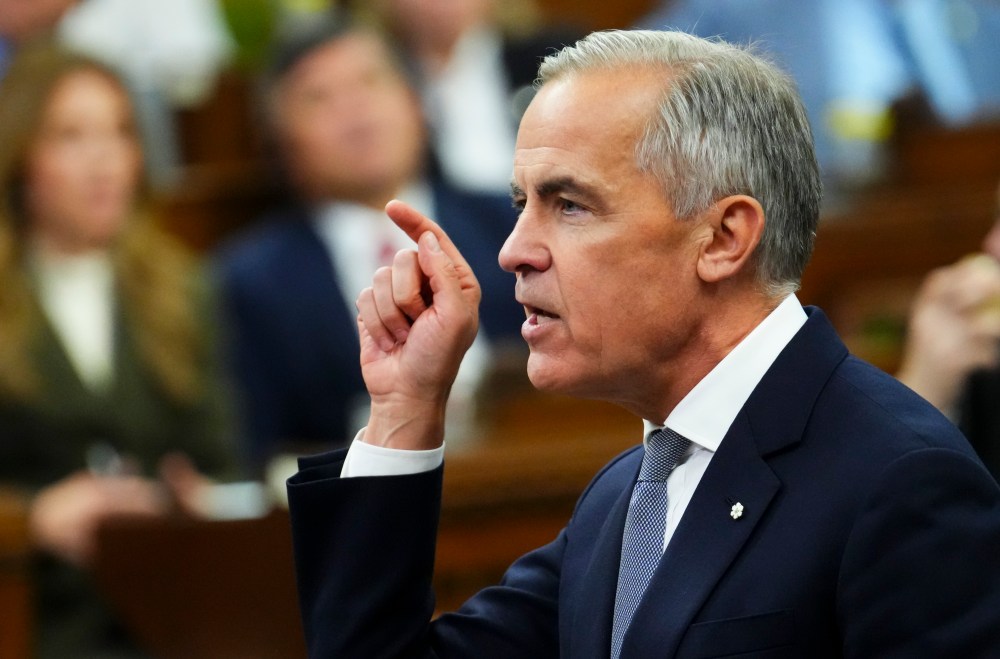New Parliament same as it ever was
Advertisement
Read this article for free:
or
Already have an account? Log in here »
We need your support!
Local journalism needs your support!
As we navigate through unprecedented times, our journalists are working harder than ever to bring you the latest local updates to keep you safe and informed.
Now, more than ever, we need your support.
Starting at $15.99 plus taxes every four weeks you can access your Brandon Sun online and full access to all content as it appears on our website.
Subscribe Nowor call circulation directly at (204) 727-0527.
Your pledge helps to ensure we provide the news that matters most to your community!
To continue reading, please subscribe:
Add Brandon Sun access to your Winnipeg Free Press subscription for only
$1 for the first 4 weeks*
*$1 will be added to your next bill. After your 4 weeks access is complete your rate will increase by $4.99 a X percent off the regular rate.
Read unlimited articles for free today:
or
Already have an account? Log in here »
It might not exactly be business as usual, but this week’s long-awaited restart of Parliament doesn’t give the impression that a whole lot has changed.
Sure, there’s a new face in the familiar seat reserved for the prime minister, and yes, a familiar face once again occupies the front-and-centre spot in the opposition benches — albeit representing a different seat than the last time he held party leadership in the chamber.
But it didn’t take long for all concerned to dispense with the welcome-back niceties and get down to the business of partisan rancour.

The minority Liberal government led by Prime Minister Mark Carney and the official Opposition fronted by newly minted Battle River-Crowfoot MP Pierre Poilievre faced off for the first time during Monday’s question period.
The PM struggled at times to make his points in the time allotted, while the Conservative leader quickly shook off whatever rust had accumulated during his brief Alberta-byelection detour and returned to familiar laments about broken promises, out-of-control spending, crime, immigration woes and general Liberal-induced chaos.
The session did start on a cordial note, with all members applauding Poilievre’s return; for his part, the Conservative leader thanked Carney for the prompt byelection call and wondered aloud “if one day he might regret that decision.”
Carney responded by offering a list of the Liberal achievements — middle-class tax cuts, internal trade-barrier relief and the establishment of initiatives such as the Major Projects Office and Build Canada Homes — that Poilievre may have missed after losing the Carleton seat he had held for more than two decades and being forced to pursue a circuitous path back to Ottawa.
Among the questions looming over the parliamentary restart was which version of Poilievre would arrive. Would it be the name-calling, slogan-spewing figure whose MAGA-inspired attack-dog style had carried the Conservatives to a massive polling lead last year?
Or perhaps a more subdued version of the demagogue. Someone who had grasped the reality that — given his party’s failure to seize what was long presumed to be a surefire election victory — tariff-imposing and annexation-threatening U.S. President Donald Trump might not be the best person for a Canadian politician to imitate.
If this week’s return is any indication, Poilievre seems to have absorbed the message delivered by voters last spring, though he appears unable to fully shake loose of the Trump-style taunts and catchphrases that are embedded in his political persona.
The tenor of Monday’s session, which included several jabs about Carney being “just another Liberal,” prompted Government House Leader Steven McKinnon to observe, “The lyrics might have changed, but the music stays the same: three-word slogans so far and a lot of angry rhetoric.”
Despite suggestions from Poilievre that he’s willing to work with any party to “make this session a success for the Canadian people,” there’s little likelihood that Parliament’s two dominant parties will do anything but squabble and spar.
And that leaves it to Carney, already facing a steep learning curve, to find a way forward for his minority government by gaining strategic support from either the Bloc Québécois or the New Democrats in order to advance each piece of legislation.
The next, and biggest, challenge will be the long-awaited budget, which will not arrive until Nov. 4 and is expected to produce a deficit larger than last year’s staggering $61.9 billion. This in spite of the fact that the Carney Liberals have advised that they intend to cut government operational spending by 7.5 per cent for the upcoming fiscal year, with 10 per cent and 15 per cent cuts to follow in successive years.
It’s going to be a difficult budget for Canadians to stomach, yet it’s unlikely the Bloc or the NDP will dislike it enough to send Canadians back to the polls, even if they don’t want to support it.
Business as usual? Not quite, but pretty darned close.
» Winnipeg Free Press and The Brandon Sun
